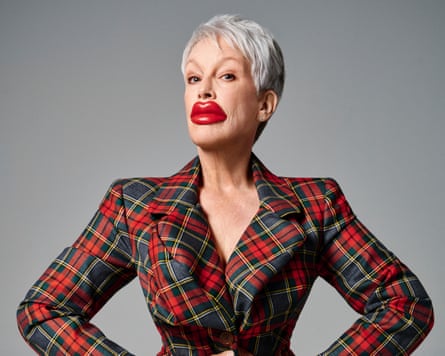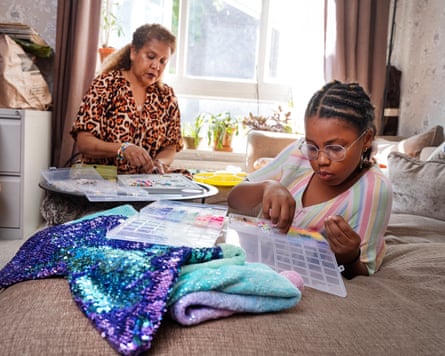-
1. Starmer v Starmer: why is the former human rights lawyer so cautious about defending human rights?
“Why is Labour’s record to date on human rights – the one thing you might expect a Starmer-led government to be rock solid on – so mixed?” asks Daniel Trilling in this comprehensive long read.
Due to Keir Starmer’s background as a distinguished human rights lawyer, his supporters hoped that he would restore the UK’s commitment to international law. Unfortunately, he is being blocked by a powerful man who has conflated protest with terrorism and called for musicians whose views he dislikes to be dropped from festival bills. That man is also named Keir Starmer. Over the past six months, Trilling has spoken to two dozen Labour insiders, former colleagues of the prime minister and leading human rights advocates in an attempt to pin down the shapeshifting PM.
-
2. ‘Generations of women have been disfigured’: Jamie Lee Curtis lets rip on plastic surgery, power and Hollywood’s age problem
“At 66, I get to be a boss,” says Jamie Lee Curtis. That is very much the vibe of this interview, in which the actor shows up “aggressively early” to the Zoom chat, opens up about her experience with addiction, and uses – and staunchly defends – the word “genocide” to describe the impact that cosmetic surgery has had on a generation of women. Emma Brockes speaks to Curtis before the forthcoming sequel to Freaky Friday, which sees the actor reuniting with Lindsay Lohan in the mother-daughter body-swap comedy (“I felt tremendous maternal care for Lindsay after the first movie, and continued to feel that”) – but their chat ends up becoming about so much more.
-
3. ‘There’s an arrogance to the way they move around the city’: is it time for digital nomads like me to leave Lisbon?
“The lack of integration means I’m not the only remote worker feeling adrift. What happens when the shared spaces of your so-called community are sun-drenched cafes and boutique fitness studios? What does it mean to never volunteer, or spend time with an elderly person, to rarely take public transport, or read the local news?”
It’s easy to romanticise the life of a digital nomad: swapping the office for a beachside cafe; living in a flat far more spacious than the ones available back home; being eternally drenched in the southern European sun. But this thoughtful piece by Alex Holder, who moved from London to Lisbon, reveals the cracks in this fantasy. “Maybe,” she wonders, “it’s time to move and make room for someone else.”
-
4. Can Democratic socialists get Zohran Mamdani across the finish line?
He had charisma. He had good content. He also had the support of the Democratic Socialists of America (DSA), an organisation whose membership has grown from 6,000 or so upon its founding in the 80s to a sizeable 80,000 today. Zohran Mamdani’s record-setting success in New York’s June mayoral primary was bolstered by 60,000 volunteers knocking on 1.6m doors across the city – a vast effort, Dharna Noor writes, made possible by New York’s DSA field team.
In this piece, Noor tracks the rise of an organisation that is increasingly shaping American politics – and considers whether it’s ready for a face-off with the Democratic establishment.
-
5. Euro 2025: our writers hand out their awards from the tournament
From the match of the tournament and the best player to the most memorable goal, Guardian sports writers nominate their picks and personal highlights from Euro 2025, and share what they’d like to see next for women’s football – “Just more of everything!”
-
6. ‘There’s an overwhelming bond of love’: the grandparents whose kids rely on them to raise a family
They say it takes a village, and parents today are ever increasingly turning to their own parents for help with childcare. One study estimates that 9 million British grandparents spend an average of eight hours a week helping to care for their grandchildren. Ellie Violet Bramley meets members of the “grey army” and talks to them about the joys – and lows – of taking a hands-on role in their grandchildren’s lives.














